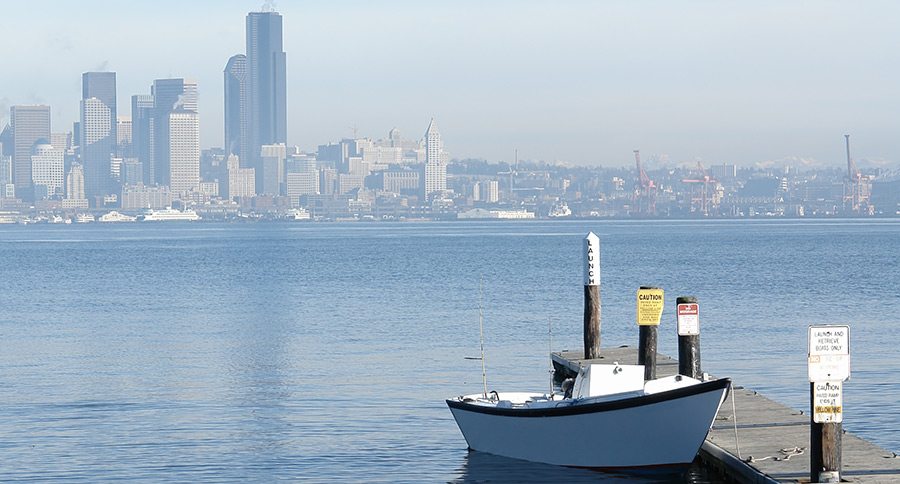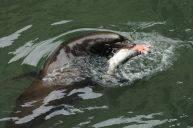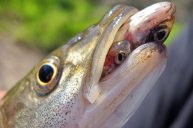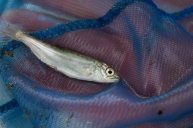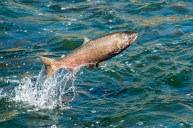Washington just approved a permit for the company responsible for one of largest escapes ever of farmed salmon in Puget Sound to move another million farm raised fish to a new facility in the state.
When a catastrophic failure occurred at a Cooke Aquaculture facility on Cypress Island in August of 2017, it led to a historic escape of farm raised salmon in Puget Sound.
Now the Washington Department of Fish and Wildlife (WDFW) has approved a permit for the same company to transfer 1 million farm raised Atlantic Salmon to another facility in Puget Sound.
Public outrage among anglers and environmentalists is growing over the news of the approval of the new permit. This is not at all surprising considering the growing awareness of the threats farm raised Atlantic Salmon pose to wild salmon, as well as the fact that the state is still reeling from the recent escape of over 100,000 farm raised fish into Puget Sound.
Since their escape on August 19, these fish have turned up as far away as the Fraser River in British Columbia and the Quinault River on the Olympic Peninsula. There's no telling how far they'll travel or what sort of problems they'll cause to the already fragile populations of wild Pacific Salmon.
After the incident at the Cypress Island facility, Washington Governor Jay Inslee instructed WDFW not to issue any permits for new salmon pens in Washington waters until the incident could be thoroughly investigated. However, WDFW claims that it did not have a legal basis to deny this particular permit for Cooke Aquaculture because it was to move healthy fish into an existing pen at Clam Bay and did not involve a new salmon pen.
Additionally, Native American tribes in Washington are co-managers of Washington's fish stocks and some representatives of the tribes are very upset about these new developments. According to Tim Ballew II, chairman of the Lummi Indian Business Council:
"I strongly feel the co-management principles were not taken into account. There could have been a better approach to looking at this permit request, we could have taken a harder look at the potential impacts for these shared waters and the tribes have not been given the time to consult. This ordeal created a disaster and an emergency for our tribe. We are deeply saddened that the state of Washington and this foreign corporation are willing to take a business-as-usual attitude. We should be putting our efforts at finding those fish that escaped rather than putting in 1?million more."
In response, lawyers at the firm Miller, Nash, Graham & Dunn of Seattle, which represents Cooke Aquaculture, wrote that:
"...the permit is not a permit for any new operation, but rather a routine permit to transfer fish from the hatchery to grow-out pens. As such, the permit requires nothing more than proof that the fish pose no disease threat."
The farm raised salmon in question were hatched at a Cooke Aquaculture hatchery in Rochester, Washington about a year ago. According to the company, the fish are biologically prepared for the move to saltwater and have grown to the point where they cannot be held at the hatchery any longer. The company also stated that facility at Clam Bay is the only one available that is suitable for the fish.
The massive escape of farmed salmon in Puget Sound from the Cypress Island facility is still under investigation.
Like what you see here? You can read more great hunting articles by John McAdams on his hunting blog. Follow him on Facebook The Big Game Hunting Blog or Twitter @TheBigGameHunt.
NEXT: THESE ARE THE BIGGEST BLACK BEAR KILLS IN THE RECORD BOOK
